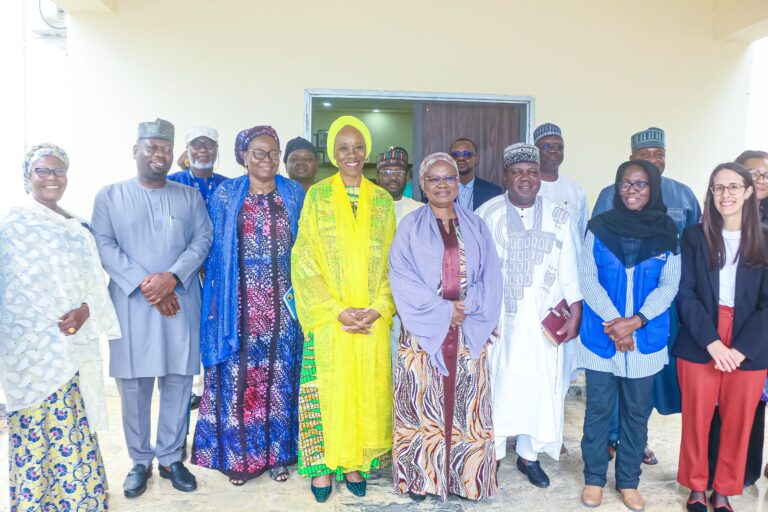The Adamawa State Government has called on the International Organization for Migration (IOM) to establish a reliable migration and displacement database to aid planning, scale up livelihoods, and support stabilization programmes for over 200,000 internally displaced persons (IDPs) across the state.
Governor Ahmadu Fintiri made the appeal in Yola on Wednesday while addressing an IOM delegation on a courtesy visit. Represented by his deputy, Professor Kaletapwa Farauta, Fintiri said the initiative is part of government’s efforts to strengthen collaboration in transitioning from humanitarian relief to long-term development solutions.
Farauta emphasized that the database would also support climate resilience and adaptation in vulnerable communities, as well as improve training for security and border officials to ensure humane and orderly migration management, particularly in strengthening cross-border cooperation with Cameroon.
She disclosed that the state government looks forward to working more closely with IOM on the closure of the two official IDP camps and the repositioning of the Malkohi Multi-Purpose Centre.
“Your support has been invaluable in camp management for IDPs, reintegration of returnees and migrants, provision of livelihoods, community stabilization, and border management capacity building. The database embedded in the Ministry for Reconstruction, Rehabilitation, Reintegration, and Humanitarian Services, alongside your participation in addressing recent floods, is highly commendable,” Farauta said.
She added that the government has approved IOM’s request for 150 hectares of land at Malkohi for urban durable solution shelters. The Ministry of Reconstruction, Rehabilitation and Reintegration, alongside the Ministry of Lands and Survey, are finalizing processes for effective partnership with IOM.
Earlier, the IOM Global Deputy Director General for Operations, Mrs. Ugochi Daniel, commended Adamawa for being the first, and one of only four states in Nigeria, to develop and endorse a State Action Plan (SAP) on Durable Solutions, describing it as a pivotal shift from humanitarian aid to long-term recovery and resilience.
Daniel also praised the state for committing 7% of its resources to support the SAP and recommended integrating SAP priorities into the State Development Plan and the Medium-Term Expenditure Framework (MTEF) to ensure continuity and accountability.
She further expressed support for activating the durable solutions steering committee to drive multi-sectoral coordination and align resources effectively.
“IOM appreciates the formal designation of SEMA and the Ministry of RRR as institutional leads for SAP implementation and data governance, with dedicated technical support,” Daniel said.















